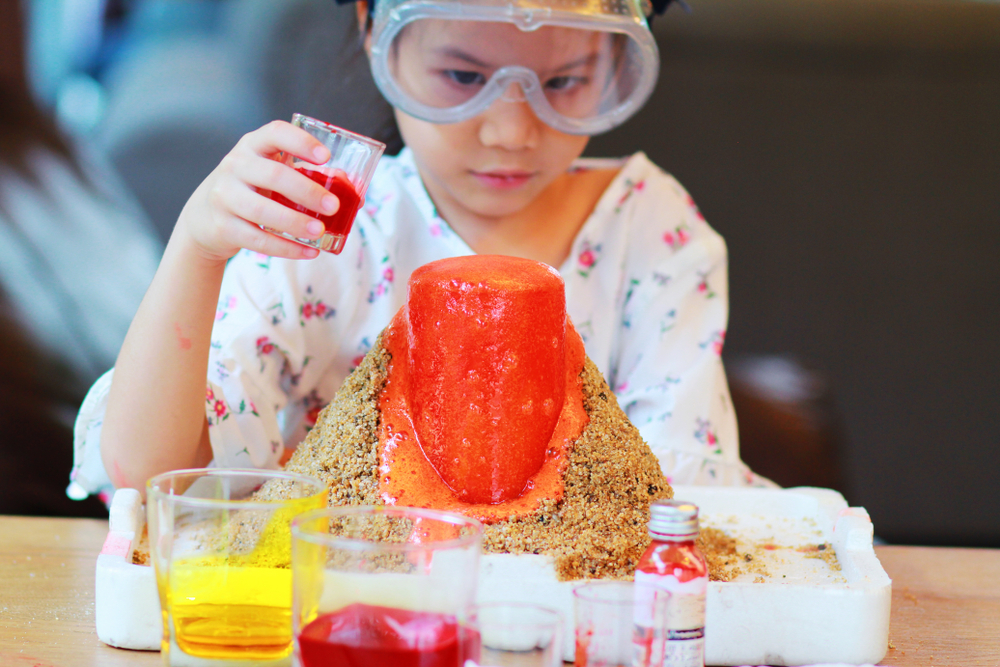Enhancing observational skills Science Worksheets for Ages 3-9
8 filtered results
-
From - To
Discover our "Enhancing Observational Skills Science Worksheets" designed for children ages 3-9. These engaging worksheets offer dynamic activities to cultivate curiosity and improve attention to detail. Young learners will love exploring the natural world, identifying patterns, and making keen observations through fun, interactive exercises. Perfect for classroom or at-home use, our printable resources are tailored to support early scientific thinking and cognitive development. With a variety of topics and hands-on tasks, these worksheets encourage children to engage with their surroundings while gaining fundamental science skills. Elevate your child's learning journey with Kids Academy today!
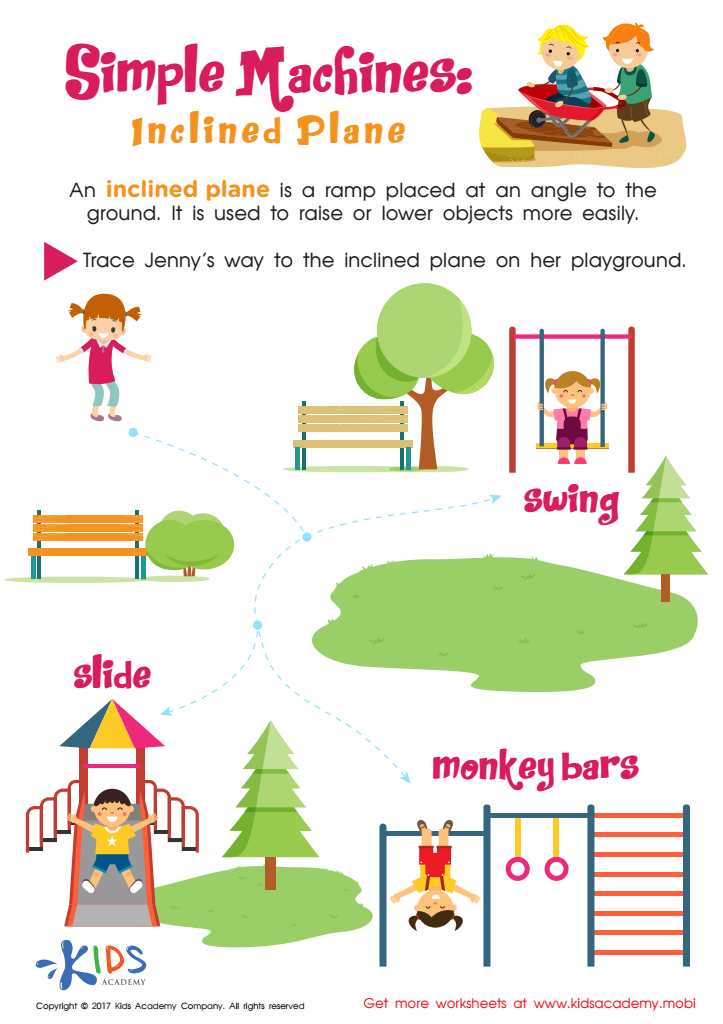

Simple Machines Inclined Plane Worksheet
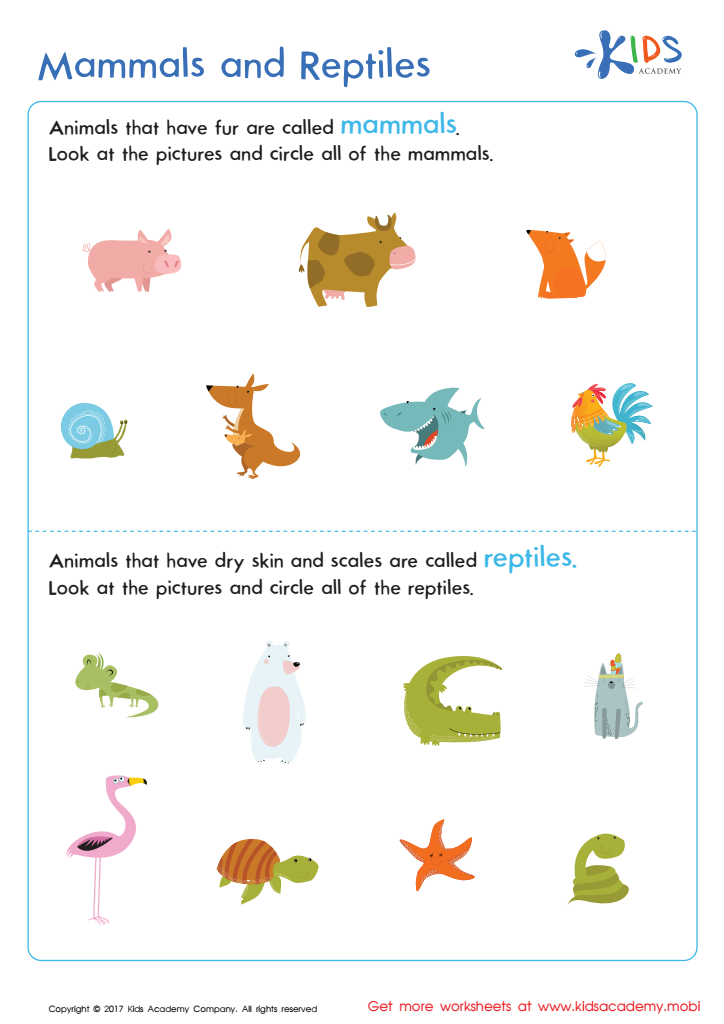

Mammals and Reptiles Worksheet
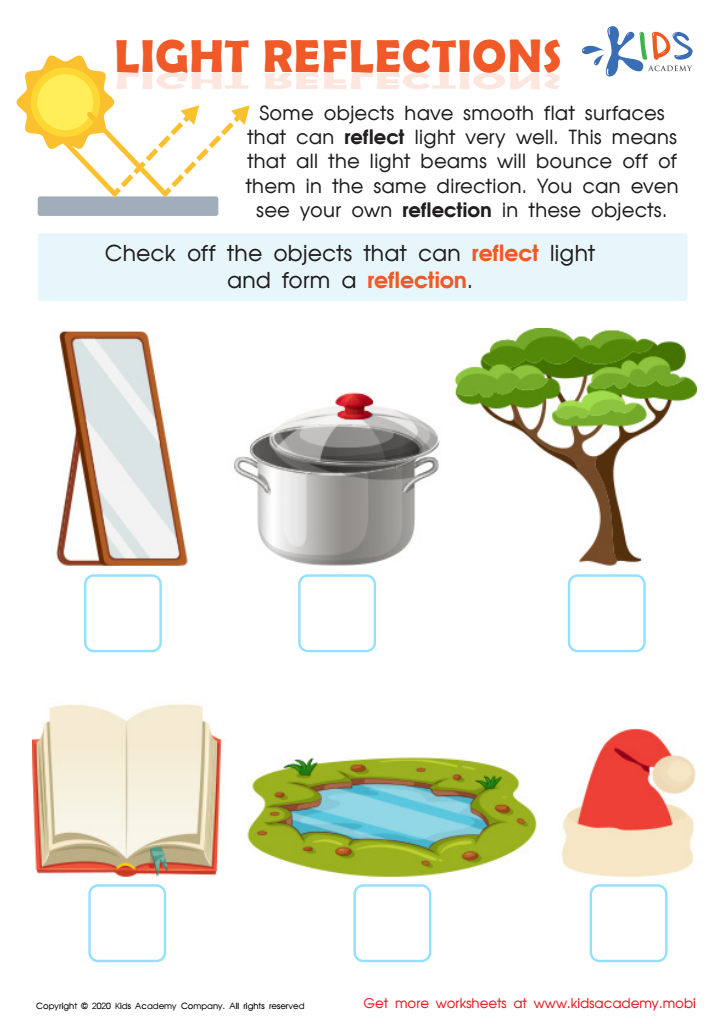

Light Reflections Worksheet
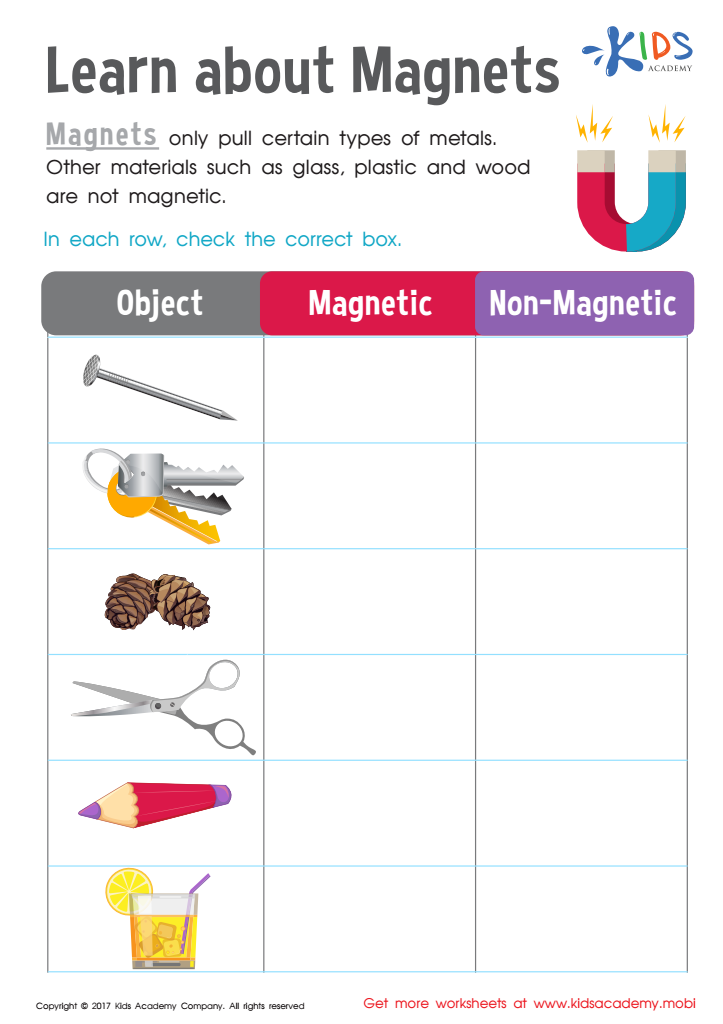

Magnetic Or Not Worksheet
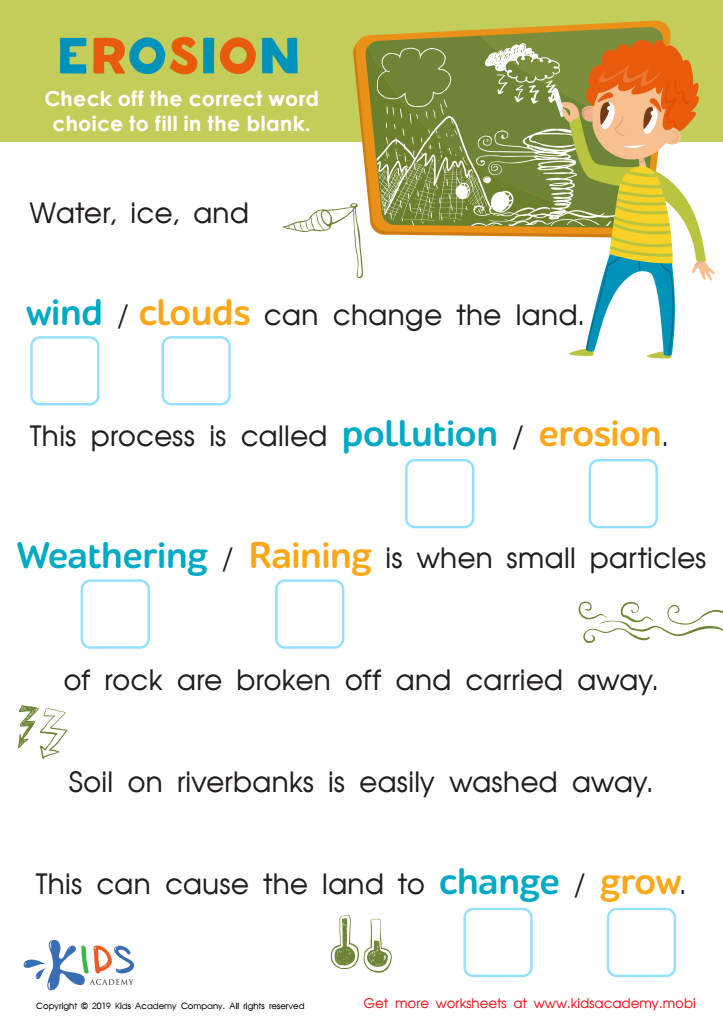

Erosion Worksheet
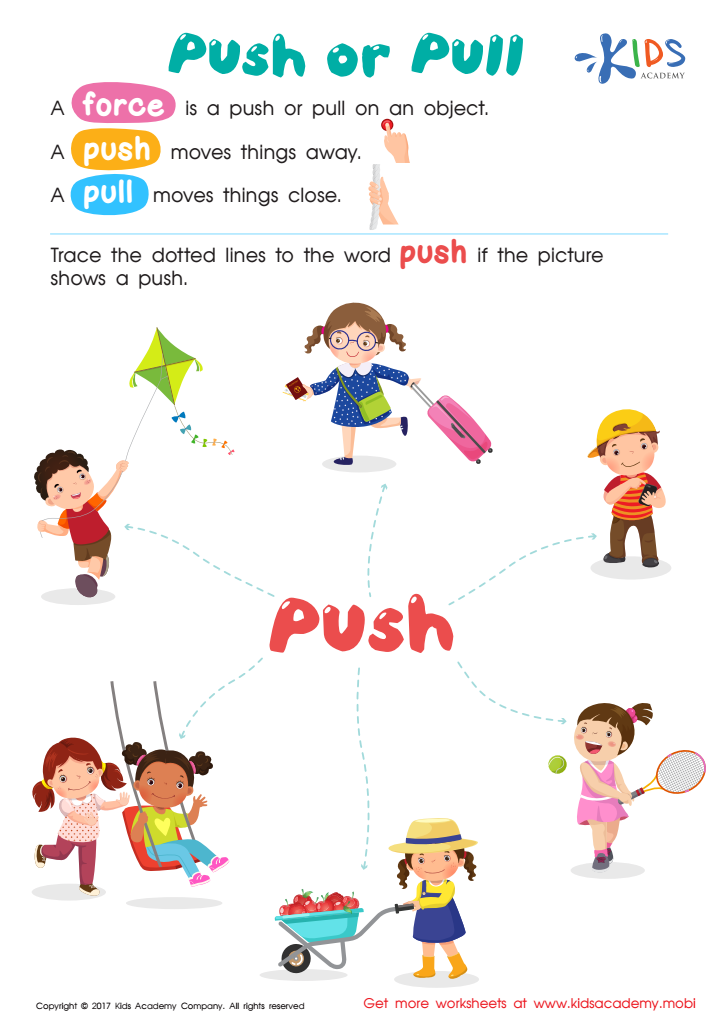

Push or Pull Worksheet
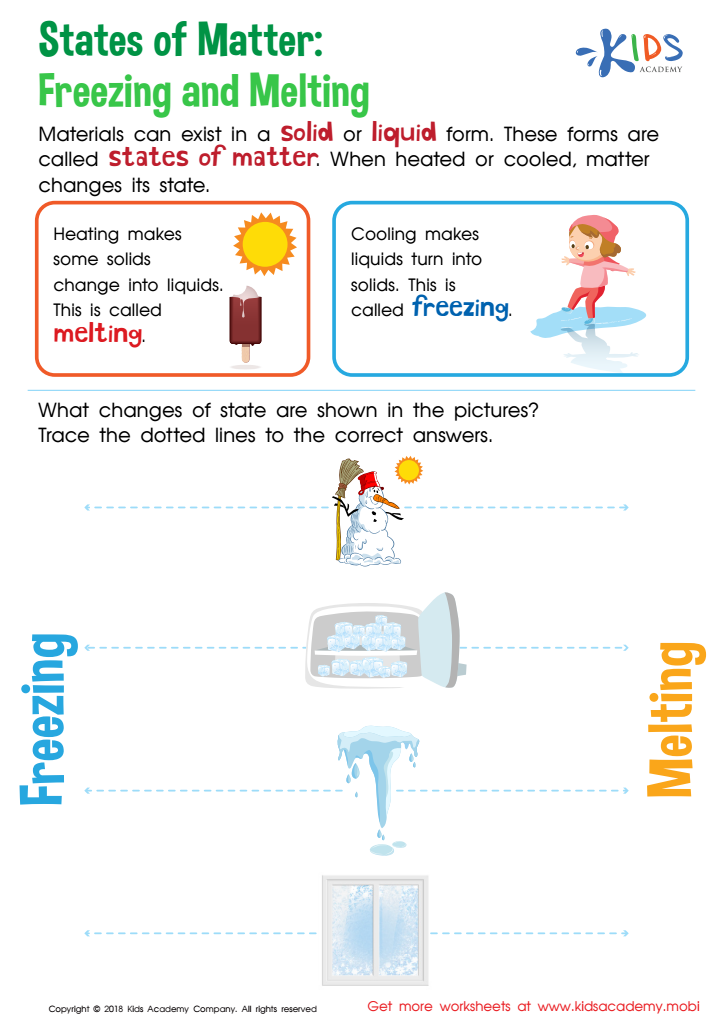

States of Matter: Freezing and Melting Worksheet
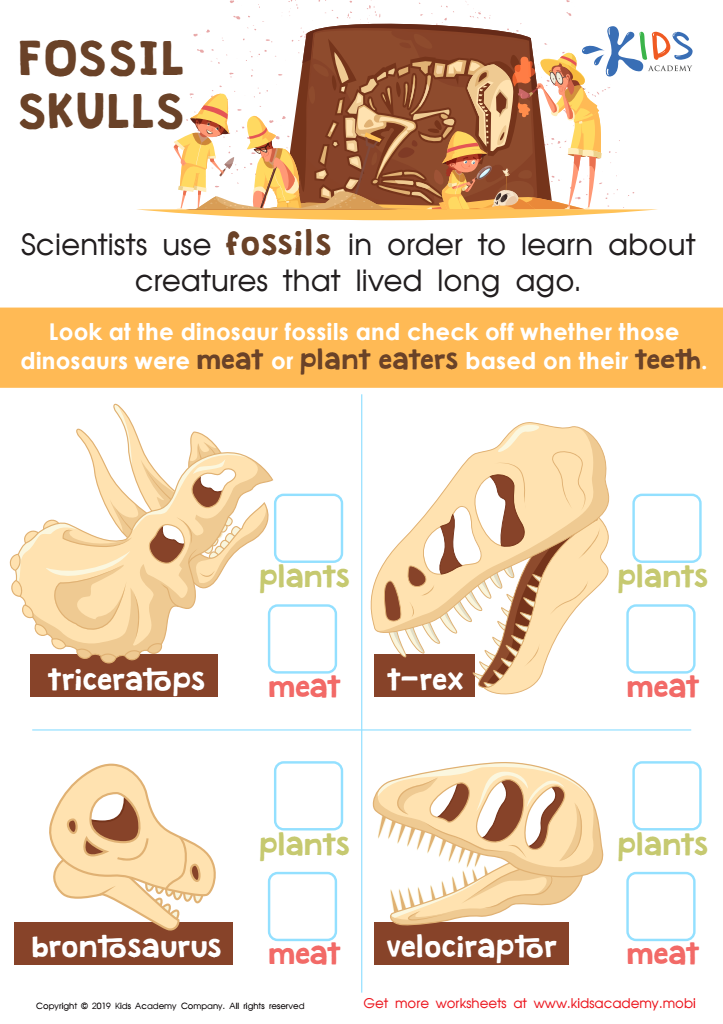

Fossil Skulls Worksheet
Enhancing observational skills in science for ages 3-9 is crucial as it lays the foundation for critical thinking and scientific inquiry. At this formative stage, children are naturally curious and eager to explore their surroundings. By nurturing their observations, parents and teachers help them develop a keen eye for detail, boosting their ability to notice patterns, differences, and cause-and-effect relationships. This not only ignites a lifelong interest in science but also enhances problem-solving skills important for all areas of life.
Strong observational skills also support language development and cognitive growth. As children describe their observations, they expand their vocabulary and improve their communication abilities. Additionally, these skills foster creativity and imagination, as children engage more deeply with the world around them by making predictions, asking questions, and drawing conclusions.
Moreover, early exposure to systematic observation helps children build a framework for scientific thinking, aligning with educational standards. It also prepares them for more complex scientific concepts they will encounter later. In a world increasingly driven by STEM fields, fostering observational skills early on ensures that young learners are equipped with the foundational tools necessary to thrive academically and in their future careers.
In sum, by prioritizing observational skills in early science education, parents and teachers empower children with the essential skills to navigate and understand their world, setting the stage for lifelong learning and discovery.
 Assign to My Students
Assign to My Students





